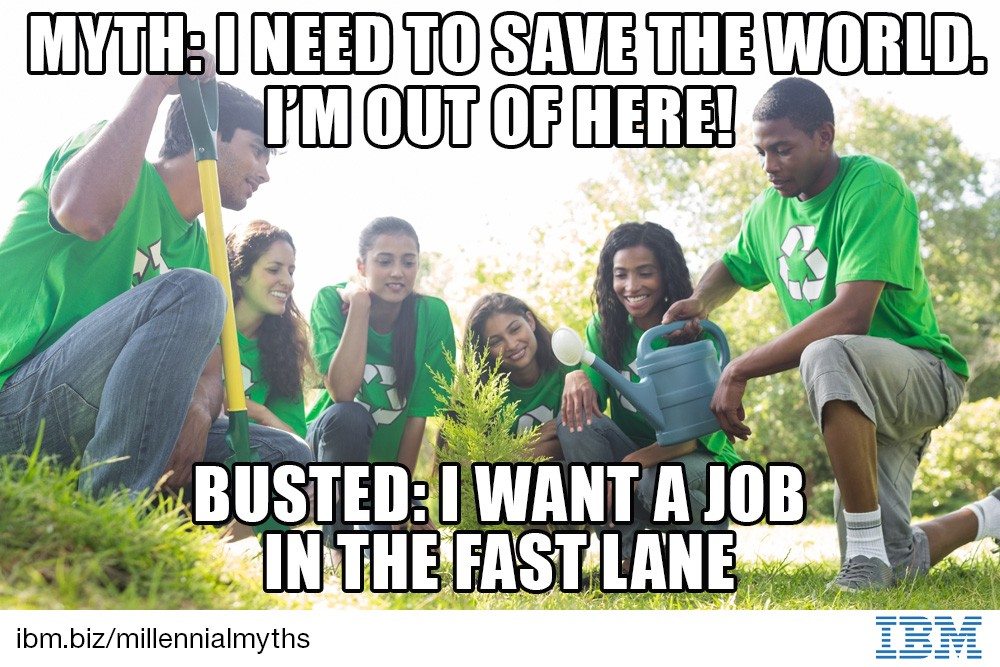It's important for brands to understand that not all Millennials think alike.
A colleague of mine makes it a point of his day to make sure to call me a Millennial — every day, at least once.
I can’t express in words how much I hate this.
Yes, I get it. Because of my age, I fall into the Millennial generation. At face value, this simply means I was born between 1980 and 2000. Perfectly fine. But the perception of what it means to be a part of this generation is something so much more, and brands are to blame.
Here’s what brands think: I am a selfie-taking, tweeting, snapping, instagraming, hoodie-wearing, lazy, entitled, 28-year-old still living off his parents' dime, with a “where’s my participation trophy” mentality.
Here’s the reality: I own a house and two dogs; Facebook is my social medium of choice; I think selfies are the bane of my generation; I wear hoodies because of ease-of-use and warmth, not to be ironic; I worked 70-hour weeks and 14-hour days following graduation from college, and took on jobs that were more time-consuming in-office than not; and most importantly - to me, there are winners and losers, not simply participants.
Rethink Your Branding
Now, I’m not on my soapbox adding to the same old “don’t label me” conversation. Yes, I’m a Millennial, but I’m a specific subset of that broad group. Brands are overgeneralizing the demographic they’re most trying to reach, and it’s making them lazy.
On a business trip last week, surrounded by shopper marketing managers and directors, I argued my case to this point. Sure, it’s easy to lump this generation together as one and design your strategy around it, but it’s a cop-out. The day after my rant, Digiday put out an article detailing three distinct, yet different, consumer profiles for Millennials. For example, there’s the self-sufficient citizen — those who take on the “I stand on my own two feet” approach to life and embrace the thinkers and doers instead of keeping up with the Kardashians. This is the approach brands need to take when designing program and campaign strategies geared toward the “Me” generation.
IBM studied Millennial habits and found that, statistically speaking, most of the myths on workplace behavior are flat out wrong: Millennials want a diverse workplace and financial security like the rest of you; they want transparency from their bosses; they split business and pleasure from their social networks, and enjoy autonomy when making decisions.
This whole over-generalization of a generation is leading to a great lapse in strategic thinking by brands. But, then again, I’m not the Millennial who brands are marketing to.
Fine-tune Your Targeting
In the fast-paced business world, we work in, it’s easy to get lost in what people want, and how to target them. It’s not hard to develop strategies around a certain demo, it just takes a little extra thinking.
In 2007, Forrester Research presented a blog post detailing the P.O.S.T method of strategic planning, which is still very much relevant today. The key takeaway: don’t back yourself into your strategy by starting with what tech platform you want to develop your campaign around. Start with your target demo first, and don’t do yourself the disservice of simplifying it to just “Millennials”.
As I mentioned above — there are lots of us out there and not all of us think or interact with social media the same. Start labeling the subsets of Millennials to get a deeper idea of how they interact with their technology, what platform they use, and how they use it. It’s all analytical data that’s at the tips of your fingers.
By doing so, you’re more likely to get the interaction with your campaigns to match your KPIs than if you cop out and settle on the blanket “Millennial” moniker.
Or, in the words of “my” people: 4 better engagement, #stoplabeling #startthinking.
.png?width=504&height=360&name=Carusele%20logo%20%C2%AE%20logo%20Color%20(2).png)
